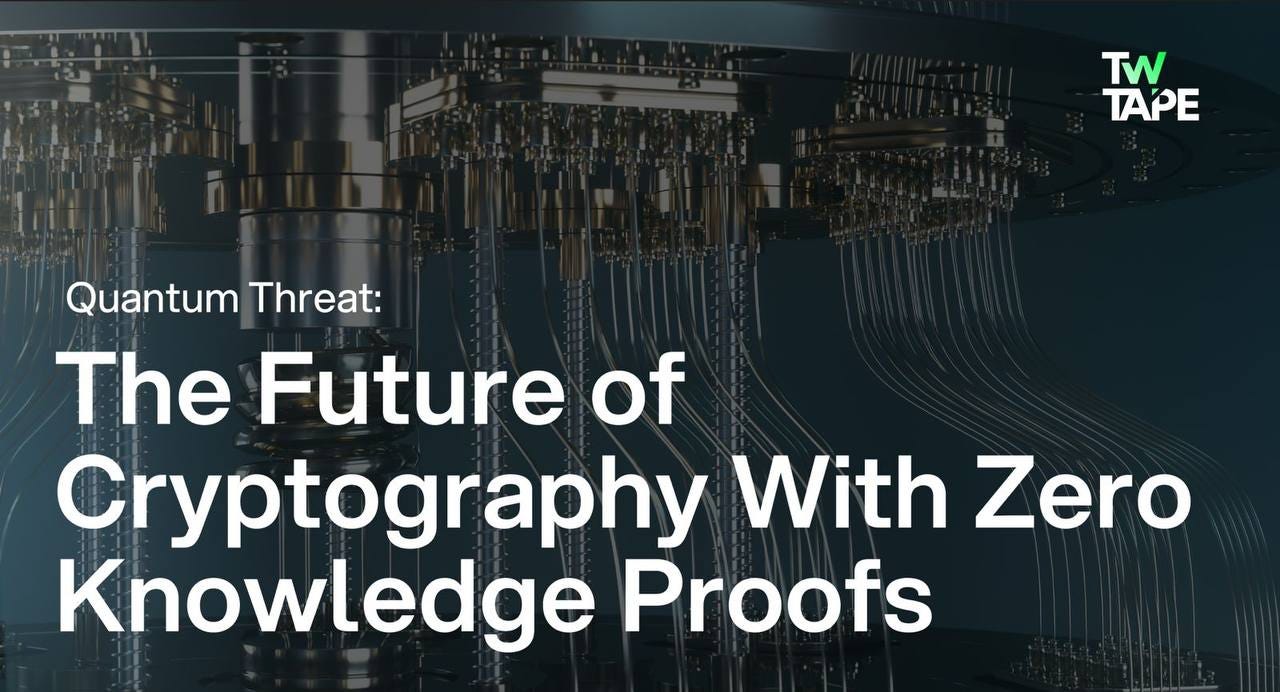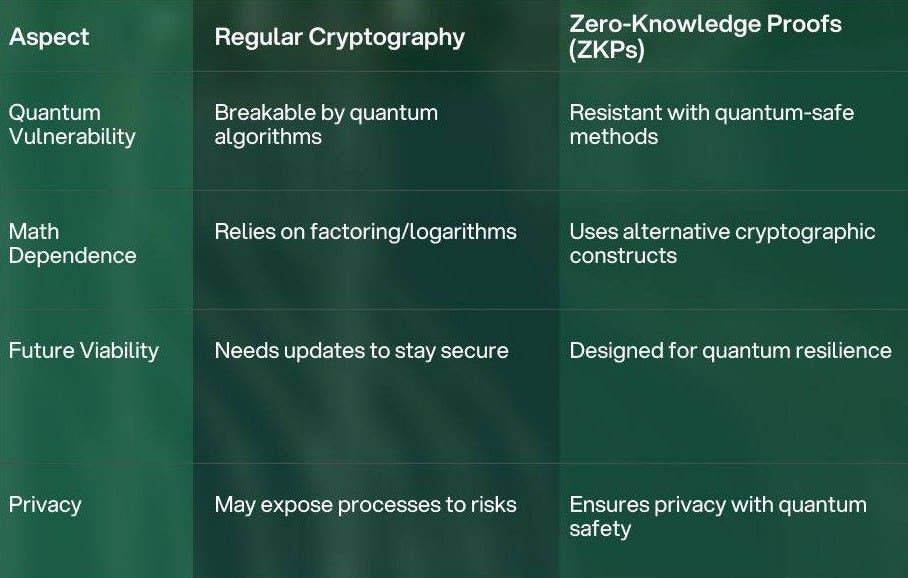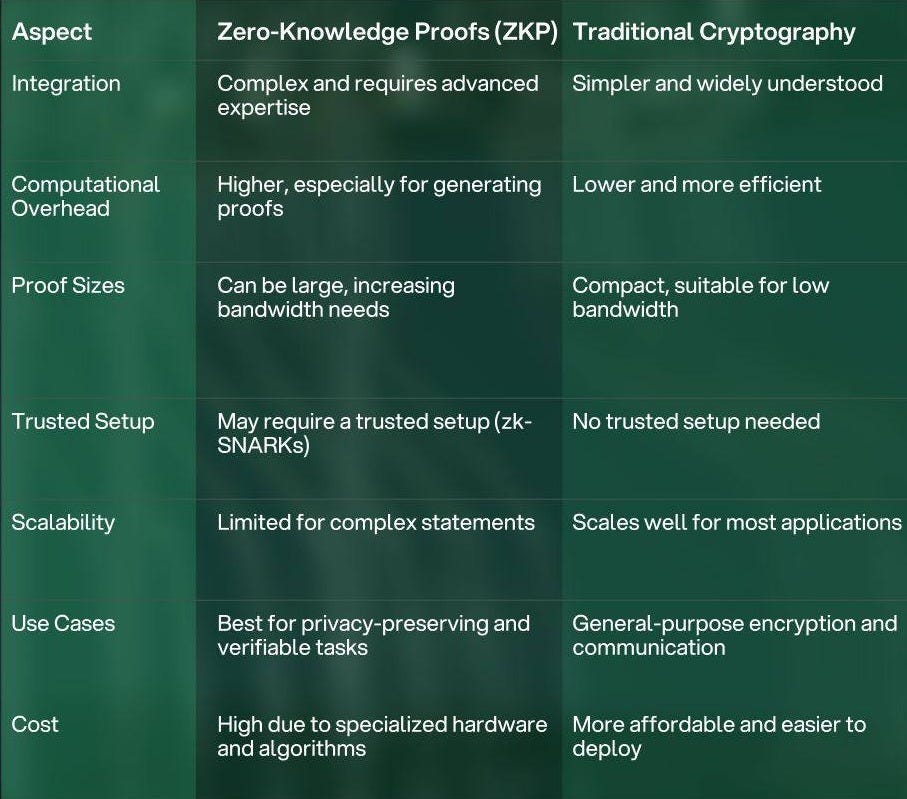Quantum computing is rapidly transforming the field of cryptography, challenging long-standing assumptions about data security. While traditional cryptographic techniques rely on the difficulty of solving complex mathematical problems, the power of quantum computing threatens to render these methods obsolete.
With the recent introduction of Google’s quantum chip Willow, crypto enthusiasts are raising concerns about the future of cryptography due to emerging threats. However, this disruptive technology also presents opportunities to rethink and enhance cryptographic systems, with innovations like zero-knowledge proofs (ZKPs) paving the way.
How is Quantum Computing a Threat to Cryptography?
Cryptography is the practice of keeping data and communications secure, often using techniques like encryption. Current systems, like RSA and ECC, rely on solving very complex math problems that regular computers can't handle. However, quantum computers can solve these problems much faster with special algorithms like Shor’s, which could make today’s encryption methods unsafe.
The potential threat of quantum computers breaking current encryption has pushed researchers to create new security methods called post-quantum cryptography (PQC). These methods use special algorithms designed to resist quantum attacks. As part of this effort, NIST has identified promising options, like CRYSTALS-Kyber and CRYSTALS-Dilithium, to set new security standards.
The global quantum computing market has witnessed significant growth, as reflected in projections from 2020 to 2030, with a compound annual growth rate (CAGR) of 18.8%. In 2020, the market was valued at $810.5 million, marking the early stages of quantum computing commercialization.
By 2022, it had surpassed $1 billion, reaching $1,050.4 million, driven by increased interest in quantum technologies for research and industrial applications. The market is expected to continue its rapid expansion, reaching $4 billion by 2030
Zero Knowledge Proof Approach
Zero-knowledge proofs (ZKPs) are tools that let someone prove something is true without sharing any details. Developers and builders have already used this in technologies like blockchain and secure logins to protect privacy.
In a future with quantum computers, ZKPs become even more important. By using algorithms that can resist quantum attacks, they help keep data safe. New developments like zk-SNARKs make ZKPs faster and easier to use, making them a key way to protect sensitive information from both current and future threats.
Historical Progress of Quantum Computing and Zero-Knowledge Proof
Quantum computing has evolved from a theoretical concept to a rapidly advancing technology with significant milestones and of recent times it is signaling rapid growth:
1980s: Richard Feynman and David Deutsch introduced the theoretical framework for quantum computing.
1994: Peter Shor’s algorithm demonstrated the potential of quantum computers to solve problems like integer factorization.
2000s: Prototype quantum processors emerged.
2020s: Big tech companies achieved milestones in quantum computing, demonstrating tasks that classical computers could not replicate.
Quantum computing has advanced significantly over the years, with companies like IBM, Google, and D-Wave Systems leading the way. Their work has focused on increasing qubit counts and developing systems capable of solving complex problems previously out of reach.
IBM has been a major player in quantum computing since introducing its 5-qubit "IBM Q 5 Tenerife" chip in 2016. By 2019, it had introduced the 53-qubit "IBM Q System One," the first integrated quantum computing system. Recent developments include the "Eagle" processor with 127 qubits (2021), the 433-qubit "Osprey" (2022), and the 1,121-qubit "Condor" (2023), reflecting IBM’s steady progress in scaling quantum systems.
Google made headlines in 2019 when its 53-qubit "Sycamore" processor achieved quantum supremacy, performing a calculation in seconds that would take classical computers millennia. Earlier, in 2018, it introduced the 72-qubit "Bristlecone." Its latest innovation, the 105-qubit "Willow," unveiled in 2024, signals ongoing advancements in scalability and performance.
D-Wave has focused on quantum annealing, launching the 128-qubit "D-Wave One" in 2011 and steadily increasing qubit counts. By 2020, it introduced the 5,000-qubit "Advantage" system, and in 2024, the 7,000-qubit "Advantage2," cementing its role in optimization-focused quantum computing.
Zero-Knowledge Proofs (ZKPs) have evolved from a theoretical concept to a vital tool in cryptography and blockchain. Initially introduced in 1985, they have grown to power privacy-focused cryptocurrencies and scalable blockchain solutions, becoming integral to modern decentralized systems. Here's a timeline of key milestones.
1985: Shafi Goldwasser, Silvio Micali, and Charles Rackoff introduced the concept of ZKPs in their groundbreaking research.
2000s: Applications expanded into blockchain, with zk-SNARKs offering compact and efficient implementations.
2010s: Zcash integrated ZKPs for cryptocurrency privacy
2020s: ZKPs have advanced further in scalability and speed, becoming a key aspect to decentralized finance and privacy solutions.
In recent days Zero-Knowledge proofs cryptography are widely used in cryptography with many new projects utilizing it to build their blockchain in an attempt to provide a high performing network while maintaining cutthroat privacy (ex. ZKsync, StarkNet, etc).
While zero-knowledge proofs offer advantages over traditional cryptography, such as enhanced privacy and security, they also have drawbacks, including higher computational costs, complexity of implementation, and scalability challenges.
Final Remarks
Quantum computing is reshaping the future of cryptography, presenting both challenges and opportunities. While the threat to traditional cryptographic methods is real, innovations like Zero-Knowledge Proofs and Post-Quantum Cryptography are paving the way for stronger, quantum-resistant solutions.




